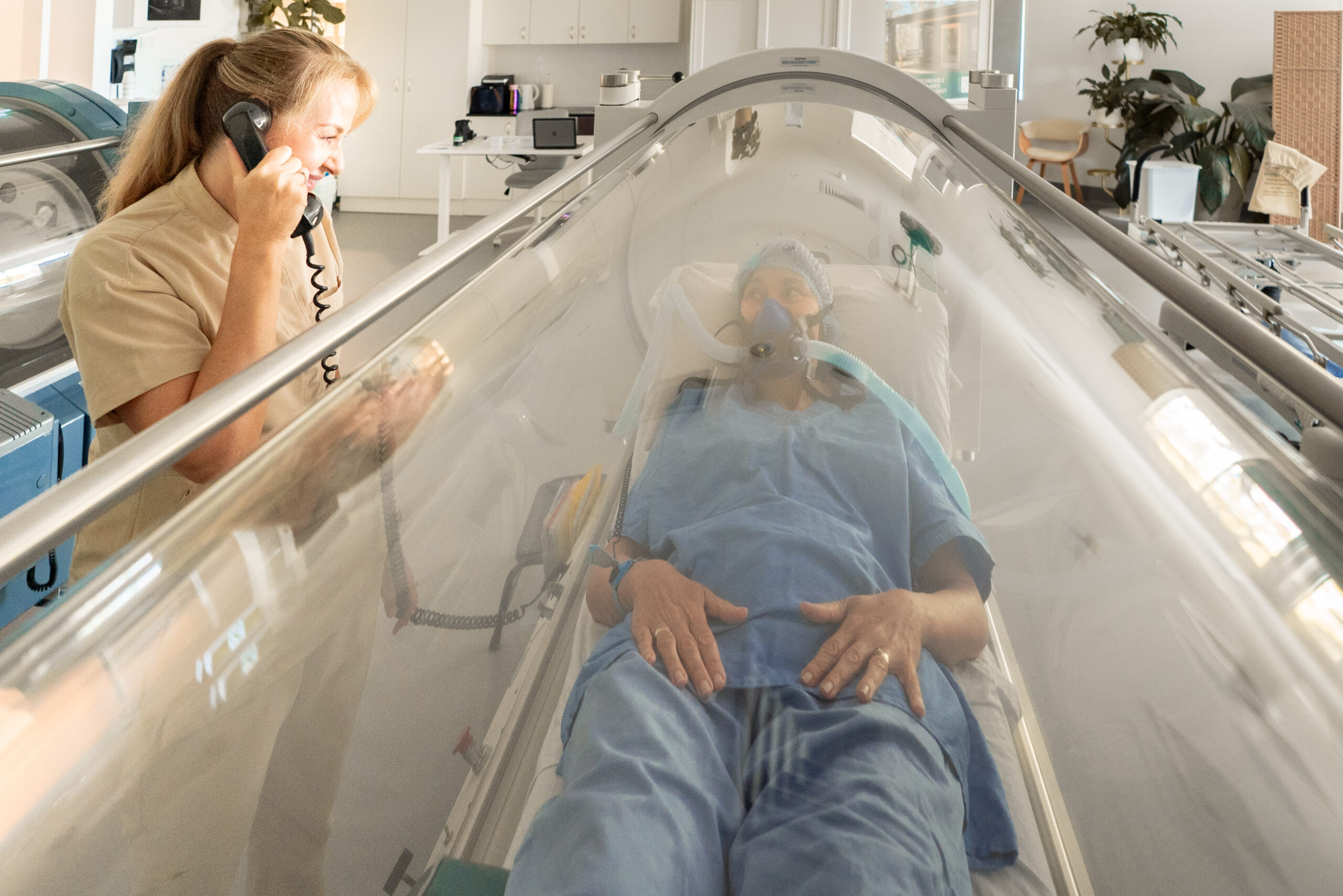Risks With HBOT
Like most things in life, there are risks with HBOT.
These risks are fortunately rare and manageable as long as the team is fully aware of any potential complications prior to treatment.
As with any treatment, side effects are possible. However, with HBOT they are minimal.
The most common is barotrauma to the ears and sinuses caused by pressure changes. This is the same effect you will experience when you go up in an airplane, but not as extreme.
You will be taught how to clear your ears prior to entering the hyperbaric chamber; on an airplane, you can swallow (parents ask their children to drink during their sessions for this reason) or you can hold your nose, close your mouth and slowly try to exhale, so you will be taught to do this during the HBOT session.
Decongestants may be helpful, but please tell your chamber technologist if you have recently had a cold or feel like you cannot ‘clear’ your ears. As in an airplane, the effect of ears ‘popping’ is temporary.
Anyone with any of the following conditions may not be a suitable candidate for HBO (this is why we work so closely with your current medical doctor):


Relative Contraindiction
To the ears and/or sinuses; otitis (fluid in the ears). You may feel discomfort in the ears and / or sinuses due to increased pressure. Techniques to alleviate it will be demonstrated by the hyperbaric staff. (simiar to airplane flight).
There is a possibility you may feel cluastrophobic. (mild risk for some).
There is a rare risk of oxygen toxicity. Treatment protocols will be deteremined to prevent this from happening. (only 6 out of 30 000)
There is a possibility of temporary visual changes. The need for reading glasses may disappear temporarily.
All items that could present a fire risk must be removed.
Free radical production is generates as a natural by-produc of metabolis, and are increased with increased oxygen. As the exposure in clinical HBOT protocols is rather brief (2hr/day) studies show that anitoxidant defences are adequate so that biochemical stresses related to increases are reversible. Silica Anhyride is a natural anitoxidant and recommended as a free radical scavenger during HBOT treatment.
absolute contraindiction
Over pressurisation (never seen at this clinic). To prevent this, decpmpressions are slowly and carefully times to prevent this from occuring. You should breathe in a relaxed manner at all times and not hold your breath during decompression